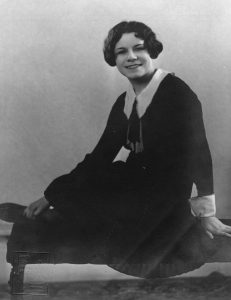If you had a magical power to change the world, what would you do (Matthew Kelly, The Four Signs of a Dynamic Catholic, 143-145)? “Superheroes use their powers to outwit the bad guys”; song writers use their powers to win the heart of the one they love. But, if we had the power to change the world, shouldn’t we use it for the greatest good, for the greatest number of people, and for the longest duration?
[Watch Fr. Justin’s homily delivery here.]
Many would suggest eliminating poverty and hunger, others would eliminate COVID-19 and all disease —both good. But poverty will come back because of human behaviour, and, if there were no diseases, human behaviour would still cause misery.
The greatest thing we could do is change people from the inside out, because, if people loved like Jesus and had His peace, then external factors wouldn’t be able to destroy that peace. And, from a Christian perspective, if we could give people eternal happiness, wouldn’t that be better than 100 years of living happily on earth?
So, the greatest thing we can do for the world is to give people Jesus, because He changes our hearts, and He is the fullness of life. This is what evangelization means, and this is why we talk about it so much here.
Think about it this way: If people just followed the Ten Commandments, how much better would the world be? Let’s go in reverse order: If we were to eliminate envy (9thand 10th), then lying (8th), stealing (7th), adultery (6th), murder (5th), if people honoured their parents (4th), respected Sunday as a holy day (even at a human level, people would be more rested and wise) (3rd), then honoured God’s name (2nd), and loved Him with their whole heart (1st), the world would be much better. But there’s more to life than the Commandments, there’s the fullness of life.
This desire to help people in the best way possible is part of what’s behind St. Paul’s words in the Second Reading: “Brothers and sisters: If I proclaim the Gospel, this gives me no ground for boasting, for an obligation is laid on me, and woe to me if I do not proclaim the Gospel!” (1 Cor 9:16).
St. Paul talks about the ‘obligation’ to evangelize. Why? First, if we had a medicine that could cure people, it would be wrong to keep it to ourselves. St. Paul knows he’ll be judged by Jesus based on his faithfulness to this responsibility. The second reason for his obligation to evangelize is his love for Jesus and others (2 Cor 5:14). Jesus died for him and he wants to love Him back. And, in one of St. Paul’s letters (Rom 9:3), he exaggerates that he loves his own people so much that, if he could be separated from Christ in order for others to love Him, he would do even that!
He then asks, “What then is my reward? Just this: that in my proclamation I may make the Gospel free of charge, so as not to make full use of my rights in the Gospel” (9:18). He taught in an earlier part of the letter that apostles have a right to earn a living when they preach, but he foregoes this so as not to burden financially the people to whom he’s preaching (1 Cor 9:6-7,12-14). So his reward is not money, but evangelizing itself! If you talk to people who love evangelizing, the greatest reward is to see others come alive and have their lives changed!
During Confession, I’ve sometimes given the person a penance to spend the rest of their day trying to make other people happy. Think about that: If you were just to consider tomorrow as your day to make other people happy, bringing joy to people would be your reward.
Finally, he writes, “To the weak I became weak, so that I might win the weak. I have become all things to all people, that I might by all means save some. I do it all for the sake of the Gospel, so that I might share in its blessings” (9:22-23). St. Paul adapts himself: When he was with Jewish people, he ate like them and washed his hands. When he was with the Gentiles, he followed their customs.
You know how in certain Asian cultures, when you’re at dinner, other people will serve you from the serving dishes? I remember realizing how thoughtful this was when I started seeing young people do it for others—ah, they’re adapting themselves for the good of others! That’s how it should be with evangelization. We pay attention to the needs of people’s hearts, meet them where they’re at in their life journey, and we bring them Jesus. And we never force Him down their throats like our grandmothers do rice when we’re eating!
But don’t worry about making mistakes! If we offer people Jesus with a sincere heart and it’s not received, don’t get discouraged. People know when we’re sincere, so, have faith that Jesus will do something good with our attempts. We’ll be running Alpha again after Easter, so, just keep that in mind with regard to those you love.
St. Paul says, ‘I do it all for the sake of the Gospel, so that I might share in its blessings.’ The word ‘Gospel’ is a reality broader than we think! In 1995, St. John Paul II wrote an encyclical letter Evangelium vitae, which means, ‘Gospel of Life,’ and said that “The Gospel of life is at the heart of Jesus’ message” (1). What do we proclaim at Easter? Jesus’ Resurrection to new life. What do we celebrate at Christmas? The life of a new child. Jesus also said, “I came that they may have life, and have it abundantly” (Jn 10:10), and He’s referring to eternal life. So, when we evangelize, we’re talking to people about the fullness of life: about Jesus Himself, the sacredness of human physical life, the eternal life God offers us, and the fullness of life when we become like Jesus.
A few days ago we had Groundhog day, and one time, Sr. Gabriella Yi told me to watch the Bill Murray film, Groundhog Day, because it’s spiritually deep! “Yeah, right,” I thought. But she was correct. It’s number one on the Arts & Faith Top 25 Divine Comedies. Murray’s character, Phil, starts out as completely selfish and arrogant. The premise of the film is that he gets stuck repeating the same day for years and can’t get out. When he starts reliving the same day, he exploits it by using people, partying, and stealing. But he desires more. He loves his co-worker, Rita, who’s beautiful and caring. He tries to seduce her, but she never gives in. Eventually, he commits suicide over and over because his life has no meaning.
But then there’s a transition: He asks Rita for help and humbles himself. They stay up all night playing cards, Rita falls asleep on top of the bed, and Phil looks at her sleeping and says, “I promise I won’t touch you.” The very next day, he buys food for his co-workers, starts reading, taking piano lessons, and improving himself, and a very moving part is the way he responds to a homeless man, whom he always ignored. Here are all the days with the homeless man:
Phil spends his final day going through the town helping every person he meets: saving a boy’s life, helping elderly women, etc. One day is completely selfless. That’s when Rita falls in love with him, because there’s so much goodness in him. The world around him hasn’t changed, but he has. From a Christian point of view, his love is sacrificial. When we celebrate the Gospel of life, we’re talking about sacrificial love, and that’s at the root of all our decisions regarding sexuality, relationships, abortion, and euthanasia.
What if we were to spend the rest of the day or tomorrow just trying to bring people Jesus in words and action? Or try just one part of your day, like the morning, afternoon, or evening?
This is our second to last week before we start 40 Days for Life, and I received word this morning that there’s some problem with doing it this year because of COVID-19, so I’ll tell you more when I find out. Let’s pray that we can go ahead with it.
And if you want to receive more life so that you can give more life, then you can sign up for Faith Studies starting on Tuesday, Feb. 16, 2021. (Please see the testimony of Faith Studies participant Nat Roque, below.)
This is Betty Navey:
She was a young widow in her 20s when she met Julian Timms. I know little about their relationship or their circumstances. However, they conceived a child. Betty made an appointment to have an abortion. When she went to the appointment, there was a delay. She changed her mind, decided to have her baby, and walked out of the locale. She knew it would be difficult to be a single parent, but accepted that. Betty is my grandmother. Through the mercy of God, her selfless act of love protected the life of my mother. And that allowed her and her children the opportunity to meet Jesus, the opportunity to spend our lives trying to become like Him, and God willing, have eternal life with Him.
The greatest way to help the world is to proclaim Jesus, and that means the fullness of life, celebrating the beauty of every human life, becoming like Him, and sharing eternal life with Him.
*****
Hello I’m Nathaniel “Nat” Roque.
I was asked before Christmas if I would like to share my experiences of Faith Studies at the parish. My first reaction was trepidation and apprehension, but I quickly realized that this could be an invitation from God for me to get out of my comfort zone.
I was born and raised Catholic. I went through all the motions: I received Holy Communion, attended Mass on Sundays and all the special days, but, I felt there was something missing. When people asked me questions like why people go to hell, or is Jesus’ becoming man similar to a ‘reincarnation’, I had a very hard time answering these questions and explaining my faith. And honestly, I was embarrassed by this. I felt like a hypocrite. How can I actively practice my faith when I couldn’t even explain it to other people?
When I heard about Faith Studies, to be honest, I didn’t have high expectations. I thought, I might learn a few new things about my faith, so I might as well try, as I have nothing to lose. To my surprise, Faith Studies really opened my eyes. The analogies presented and explained allowed me to understand my faith on a level that I could relate to. It never occurred to me to ask the Holy Spirit for help until the chocolate milk analogy was explained in the Source study, and my eureka moment came when we talked about the bridge analogy in the Discovery study. The bridge had already been built – I just needed to walk across it. I realized then that God had provided everything, and what I needed to do was simply accept His invitation to have a relationship with Him.
I grew up believing that we need to be tough. At a very young age, I was pushed to run faster, hit harder, jump higher, beat my opponent. If I did these I got a pat on the back and was praised for doing a great job! Humility and meekness were perceived as weaknesses. But Faith Studies made me realize that God does not require me to be ‘macho’ in front of Him, or that I have to try to do everything myself. I can learn to let go of the steering wheel by trusting Him, and letting the Holy Spirit guide my sailboat.
I am not very open about my emotions. I do not talk about my feelings let alone openly talk about my faith. Through Faith Studies I learned that when I listen, share, and dialogue with my leader and the other participants, it deepens my understanding. The setting is very relaxed and the online Zoom set-up is a bonus for me because it can be done from the comfort of my home, so I don’t have to rush out again after coming home from work.
I have completed the first two levels of Faith Studies and I’m looking forward to continuing into the third level this round. Faith Studies gave me these ‘gems’ that I still carry with me and I want you to find those gems as well! If you have not taken Faith Studies, I highly encourage you to try it!
Please pray for my journey as I will pray for yours as well.




